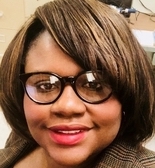 Virginia State University is now offering what could be the nation’s first higher education course in the history of the Historically Black Colleges and Universities. This is the first semester that the course is being offered. It quickly filled to capacity.
Virginia State University is now offering what could be the nation’s first higher education course in the history of the Historically Black Colleges and Universities. This is the first semester that the course is being offered. It quickly filled to capacity.
The 300-level course – HBCU History – covers a range of historical and cultural topics including: the schools’ origins; political activism; roles in creating the Black middle and upper class; sports, music, campus life and culture; funding sources; contributions to America; roles in African decolonization; notable alumni/ae; past, present, and future challenges and much more.
 The course was created by Cheryl Mango, an assistant professor of history at Virginia State University. “HBCUs, though lauded for their contributions, are no exception when it comes to the need for serious academic study of their historical trajectories,” says Dr. Mango. “In light of the battle for scholarly confirmation, I believe that HBCU History and HBCU Studies classes are the next frontier for Black colleges.”
The course was created by Cheryl Mango, an assistant professor of history at Virginia State University. “HBCUs, though lauded for their contributions, are no exception when it comes to the need for serious academic study of their historical trajectories,” says Dr. Mango. “In light of the battle for scholarly confirmation, I believe that HBCU History and HBCU Studies classes are the next frontier for Black colleges.”
Dr. Mango is a graduate of Grambling State University in Louisiana, where she double majored in history and political science. She holds a master’s degree in history from Louisiana Tech and a Ph.D. in history from Morgan State University in Baltimore.









Let me get this straight. HBCUs have been in existence since 1837 and it literally taken 183 years before they offered its FIRST course on HBCU history. This only highlights why HBCUs are under constant attacks externally and even internally due to a lack of collective Black academic consciousness within the HBCU landscape. Entirely too many HBCU Presidents and Chancellors and other upper echelon administrators are more concerned about placating to their respective White state legislator’s and White donors. Further, HBCUs should be more concerned about truly educating Black students on the purpose, intent, mission along with the institutional and structural racism it faced with historically and currently as compared to just getting a JOB. They just don’t get it. By the way Dr. Mango, you need to recognize that HBCUs don’t need to be Validated by White academia in order to be considered scholarly work.
Michael, I’m not sure if you attended an HBCU, but my undergraduate HBCU, and many I’ve worked with, offer mandatory courses on the history, mission, and purpose of their universities. Additionally, many of these universities instill pride and validation in matriculating from an HBCU.
I think this course is a great opportunity to fully teach and incorporate the history of HBCUs in American history, specially for those students who do not know the history.
Hey KM,
Are you kidding me! Your entire comment is littered with pure emotions and no facts. I would suggest that you reread my initial comment. You are aware that HBCUs can be critiqued by anyone regardless if they’re an alumni(a) or not. Let’s be honest KM. HBCUs are mired in Colorism, Groupism, Sexism, and lack true accountability. Give me a break.
This is a great idea! I was just thinking I need to develop a course about HBCUs while we’re revising our curriculum.